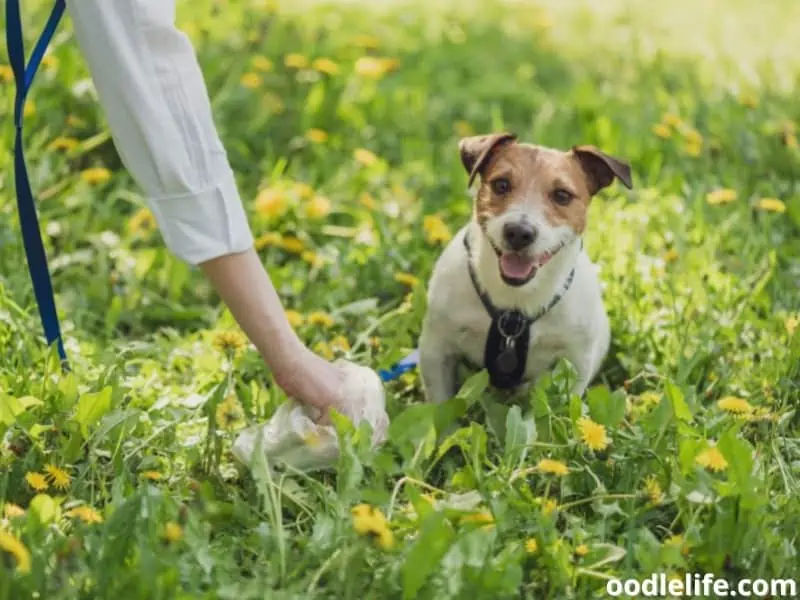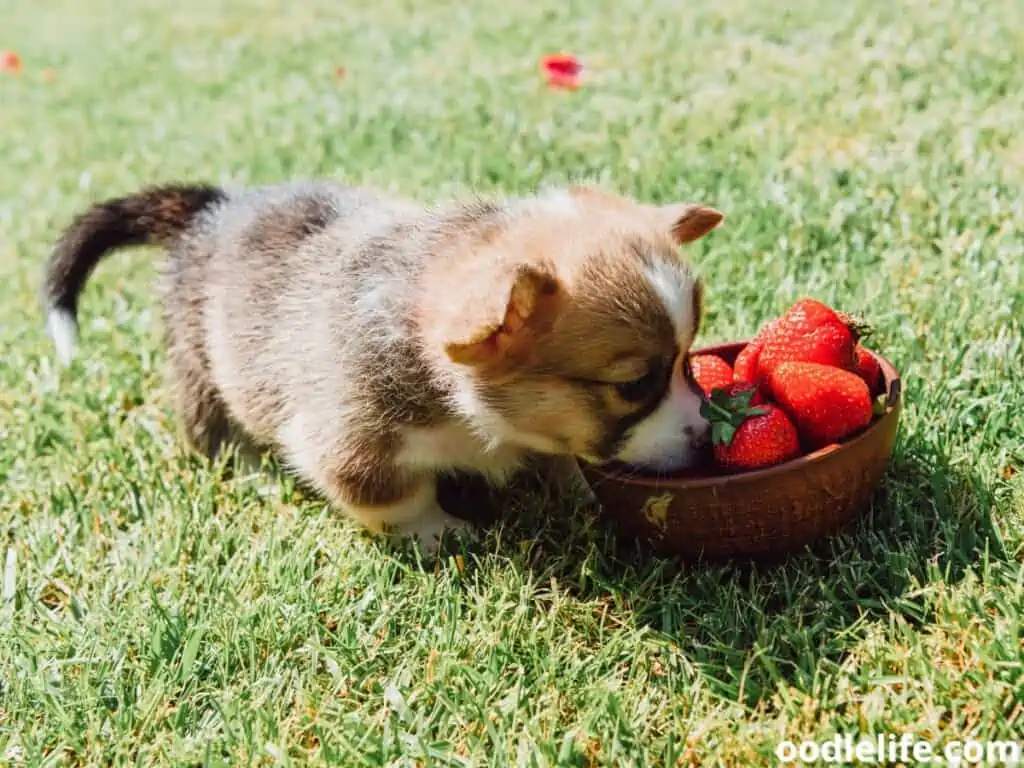When Does Puppy Poop Become Solid?
As a responsible dog owner, you’ll want to monitor your puppy’s pooping habits.
I know that it’s not fun to look at your dog’s poop, but changes in bowel habits can be an early warning sign to catch some conditions before they become big problems. We all wait for the day when our puppy makes fewer messes in the house, including potty training messes.

So, when does puppy poop become solid? Fortunately, their poop becomes solid somewhere between five and eight weeks.
Why Is Puppy Poop Runny?
Puppies live their first several weeks of life on only their mother’s milk. All puppy’s bowel movements are runny during this stage. This consistency is natural and nothing that should worry you.
The poop will start to solidify as you introduce solid foods. It shouldn’t happen overnight, but gradually you’ll see this change.
Your puppy’s bowel movements might be runny for a few days simply because of their diet changes when you wean them. Within three to four days, you should start to see firmer stools.
However, remember that soft dog food usually results in soft bowel movements.

Potential Warning Signs
If your dog’s bowel movements turn watery or they seem to have excessive diarrhea, your puppy could have a medical problem.
And if your dog’s bowel movements firm up at first and then switch back to running, or they develop diarrhea or very watery stools, call the vet and let them know.
Puppies can get dehydrated very quickly from diarrhea. It can also be a sign of some potentially devastating illnesses.
Internal Parasites
If your dog has bowel movement changes that seem unusual or your pup develops diarrhea, look at the bowel movement to check for signs of parasites. Most parasites will interfere with digestion and can cause runny poop and diarrhea.
Fortunately, it’s usually easy to see if your dog has worms because they’re visible in the stool.
The most common worms that can affect your dog’s digestion and bowel habits are:
- Roundworms that can be several inches long and look like small pieces of spaghetti
- Hookworms that are usually short and thin
- Whipworms that are thin like thread
- Tapeworms that leave egg sacs in the poop that look like tiny pieces of rice and often show up in the fur around a dog’s anus

Deworming
Veterinarians recommend deworming puppies starting at two weeks of age and giving worm medication every two weeks until dogs are at least 12 weeks old.
Puppies will often get worms from their mothers, so many are born with parasites that grow with them unless you deworm early.
Worms aren’t difficult to treat, particularly when you treat them early. In older dogs especially, deworming medication could often cause diarrhea as the body expels the dead parasites.
After your puppy is 12 weeks of age, vets typically recommend that you deworm it once a month until it’s six months old. After that, worm treatment every three months is usually the recommended adult deworming schedule.
If you didn’t deworm your puppy and its poop isn’t as solid as it should be, talk to the vet about checking for worms. The vet will test your dog’s feces for egg sacs.
External Parasites
When does puppy poop become solid? If it doesn’t happen between five and eight weeks of age, rule out internal parasites but don’t forget the external ones.

Fleas
You should know if your dog has fleas because they can be as annoying for humans as dogs. Small dogs, especially puppies, are more sensitive to fleas because they have less blood volume.
A flea infestation means that fleas are drinking the dog’s blood and leaving less for it to survive on. In severe cases, diarrhea, vomiting, and other signs of poor health can result from flea bites.
Check your dog for fleas and get the proper treatment from your vet if you find any.
Illness
Canine distemper is a severe medical condition that shows itself in signs like extreme diarrhea. Puppies should get their first distemper shot at six weeks old to help protect them against this disease.
Canine distemper is a virus that often kills puppies because their immune systems aren’t well developed yet. It’s a highly contagious disease that can also affect adult dogs, but they usually recover from it.
Distemper can have lasting effects on a dog’s health, so prevention is vital. Extreme diarrhea is often one of the first signs of distemper, with lack of appetite, sneezing, runny nose, fever, and general signs the dog doesn’t feel well.
Contact your vet immediately if you see these signs in your puppy, especially before the first distemper shot.
Runny stools are a symptom of many other medical conditions, primarily mild and temporary. Anytime you notice a change in your dog’s stool, it can help to contact your vet and ask questions to determine whether the dog needs a checkup.

Photo Bev Goodwin CC
Food
Some dogs don’t react as well to certain foods as others. This difference in food tolerance is why there are hundreds of different formulations of dog food you can buy.
If your dog’s poop doesn’t turn solid within at least eight to 10 weeks of age, you should let your vet know. But fixing the problem could be as simple as changing the food you feed your dog.
Cheap food that lacks nutrition could affect your dog’s health and well-being in the same way it would affect yours if you ate nothing but junk food all the time. If you’re unsure what kind of food is best for your dog, ask your vet for recommendations.
Most dogs don’t need a special diet, but a mix of dry and wet food with the proper protein and fat ratios for its age can help your dog thrive. Switching to a better food can also help make their poop solid.

Final Thoughts
I hope this has helped you understand when your puppy’s poop should become solid. There’s no reason for concern that a puppy has runny poop before switching to solid food. But you should pay attention to any changes to catch illness early or switch to a food that’s easier on your puppy’s tummy.